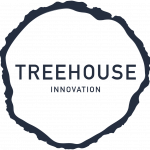Prototyping: Where ideas come to life in design thinking
Prototyping in the design thinking process: Turning ideas into reality
Prototyping is where ideas move from concept to reality in the design thinking process. It’s the step that transforms abstract ideas into tangible experiments, allowing teams to test, refine, and ultimately create innovative solutions that work in the real world.
Why prototyping is essential for innovation
It’s time to select the best ideas generated during the ideation phase and build prototypes to demonstrate how they could look. Prototyping acts as a bridge between brainstorming and execution in the design thinking process. When you create a prototype, you make innovation tangible, allowing others to visualise and interact with your idea. The iterative nature of prototyping ensures that design thinking leads to real-world solutions that meet user needs.
Different ways to prototype in the design thinking process
There are lots of ways to create prototypes – you could draw a sketch, ask AI to generate an image for you, shoot a quick video, make a 3D digital model, or build digital wireframes. Whatever you do, the key is to create something rough and ready that you can easily share to get fast feedback from users.
Iterate, test, and refine your prototype
This is an iterative process, so your prototype is just your starting point. The solution you end up taking forward will likely be quite different from your initial prototype. Maintaining a design thinking mindset throughout the prototyping stage is key – staying curious, adaptable and resilient will help you get the outcome you need.
From prototype to innovation: Bringing your solution to life
By going through the prototyping phase of design thinking, you’ll work out what does and doesn’t work about your idea before you’ve invested resources in building it. Through testing and iterating, you’ll end up with an implementable solution that you know will meet user needs.
See prototyping in action
Want to see prototyping in action? Watch our video to explore how prototyping fuels innovation and drives better outcomes in the design thinking process.
Let’s design something extraordinary together
We help businesses like yours drive growth through design innovation. Discover more and schedule your free consultation today. hello@treehouseinnovation.com
